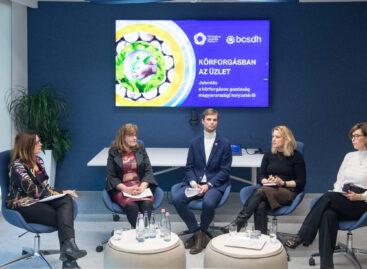German consumers save a record amount on sustainable food
The propensity to buy sustainable products in Germany has fallen to a record low.

The GfK Sustainability Index for October fell to 88.1 points for FMCG-goods, thus hitting an all-time low. The proportion of people who regularly buy sustainable products has fallen from 27% to 20%, and only 62% are willing to pay more for them, down 7% from July.
Sustainability is still a major concern in fresh food categories such as vegetables, fruits, meat and fish, with 53% of shoppers choosing them because they are sustainable. Sustainability is the most important to consumers for staple foods such as rice (44%) and dairy products (43%), while only 22% of consumers prioritise sustainability for alcoholic beverages and home furnishings.
Although the overall sustainability trend is downwards, the organic food market has grown: according to NIQ’s latest retail panel data, organic food sales volumes are up by almost 10% compared to last year. Consumers continue to seek environmentally friendly solutions, especially local products. According to GfK, footfall in higher-priced organic shops is declining, while interest in organic private labels is growing.
Lebensmittelpraxis
Related news
Germany’s CDU pushes for nationwide ban on energy drink sales to under 16s
🎧 Hallgasd a cikket: Lejátszás Szünet Folytatás Leállítás Nyelv: Auto…
Read more >Data-driven carbon footprint reduction in practice: measurement and compensation at SPAR’s key events
🎧 Hallgasd a cikket: Lejátszás Szünet Folytatás Leállítás Nyelv: Auto…
Read more >There is no circular breakthrough without a strategy – survey on the domestic state of the circular economy
🎧 Hallgasd a cikket: Lejátszás Szünet Folytatás Leállítás Nyelv: Auto…
Read more >Related news
KSH: The volume of exports of food, beverages and tobacco increased by 6.8 percent, while imports increased by 9.8 percent
🎧 Hallgasd a cikket: Lejátszás Szünet Folytatás Leállítás Nyelv: Auto…
Read more >Almost 6 thousand products now bear the 20-year-old Hungarian Product trademark
🎧 Hallgasd a cikket: Lejátszás Szünet Folytatás Leállítás Nyelv: Auto…
Read more >Food industry sales prices increased by 2.4 percent
🎧 Hallgasd a cikket: Lejátszás Szünet Folytatás Leállítás Nyelv: Auto…
Read more >








